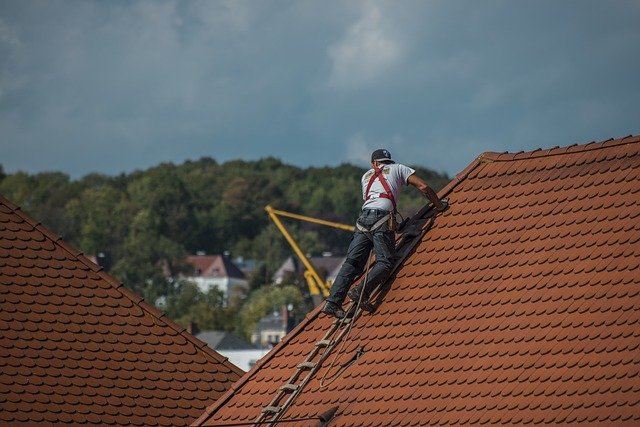More British Are Replacing Their Roofs With This Metal Option
Across the UK, more homeowners are switching to metal roofs thanks to their long lifespan, low maintenance, and energy-saving benefits. With modern materials and new installation programs available, the cost is lower than many expect. Whether it’s about protecting your home from extreme weather or improving resale value, metal roofing offers a durable solution worth considering.

How do metal roofs contribute to energy efficiency?
Metal roofs play a significant role in enhancing a home’s energy efficiency. Their reflective surface helps to deflect solar radiation, reducing the amount of heat absorbed by the roof. This reflective property can lead to lower cooling costs during summer months, as less heat is transferred into the living space. Additionally, many metal roofing systems are designed with built-in ventilation, which can further improve overall energy performance by allowing hot air to escape and preventing heat buildup in the attic.
What should homeowners know before switching roof types?
Before making the transition to a metal roof, homeowners should consider several factors. Firstly, it’s crucial to assess the structural integrity of your home, as metal roofing can be heavier than traditional materials like asphalt shingles. Consulting with a structural engineer may be necessary to ensure your home can support the added weight. Additionally, homeowners should be aware that metal roofs can be noisier during rain or hailstorms, although proper insulation can mitigate this issue. It’s also important to check local building codes and homeowners’ association regulations to ensure compliance with any restrictions on roofing materials.
How can homeowners check if their area qualifies for installation discounts?
To determine if your area qualifies for metal roofing installation discounts, start by contacting local roofing contractors who specialise in metal roofing. Many companies offer promotional discounts or seasonal deals that can significantly reduce installation costs. Additionally, check with your local council or energy provider for any available rebates or incentives for energy-efficient home improvements, which may include metal roofing installations. Some manufacturers also offer direct discounts or cashback programmes, so researching different brands and their current offers can be beneficial.
What are the long-term cost comparisons between metal roofing and asphalt shingles?
When comparing the long-term costs of metal roofing versus asphalt shingles, several factors come into play. While the initial investment for metal roofing is typically higher, its longevity and durability often result in lower overall costs over time. Metal roofs can last 50 years or more with proper maintenance, whereas asphalt shingles generally need replacement every 15-30 years. Moreover, metal roofs require less maintenance and are less prone to damage from severe weather, potentially reducing repair and replacement expenses over the roof’s lifetime.
Why are more British upgrading to metal roofing in 2025?
The increasing popularity of metal roofing in the UK can be attributed to several factors. As climate change leads to more extreme weather patterns, homeowners are seeking more resilient roofing options that can withstand high winds, heavy rain, and even hail. Metal roofs excel in these conditions, offering superior protection against the elements. Furthermore, the growing focus on sustainability and energy efficiency has made metal roofing an attractive option for environmentally conscious homeowners. The recyclability of metal roofing materials aligns well with the UK’s push towards more sustainable building practices.
What are the cost considerations for metal roofing in the UK?
When considering metal roofing in the UK, it’s important to understand the cost implications. While prices can vary depending on factors such as material type, roof size, and complexity of installation, metal roofing generally represents a higher upfront investment compared to traditional roofing materials. However, the long-term benefits often justify the initial expense.
| Metal Roofing Type | Average Cost per m² (Supply Only) | Average Cost per m² (Installed) |
|---|---|---|
| Steel | £20 - £30 | £50 - £75 |
| Aluminium | £25 - £40 | £60 - £90 |
| Copper | £80 - £120 | £120 - £180 |
| Zinc | £70 - £100 | £100 - £150 |
Prices, rates, or cost estimates mentioned in this article are based on the latest available information but may change over time. Independent research is advised before making financial decisions.
While the initial costs may seem high, it’s crucial to consider the long-term savings. Metal roofs typically last 2-3 times longer than traditional roofing materials, reducing the need for frequent replacements. Additionally, their energy-efficient properties can lead to lower heating and cooling costs over time. Some insurance companies also offer discounts for homes with metal roofs due to their durability and fire resistance, potentially lowering insurance premiums.
In conclusion, the trend of British homeowners opting for metal roofing is driven by a combination of factors including durability, energy efficiency, and long-term cost-effectiveness. While the upfront investment may be higher, the benefits of metal roofing often outweigh the initial costs, making it an increasingly popular choice for those looking to upgrade their homes in 2025 and beyond.




